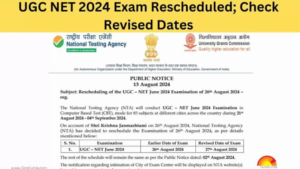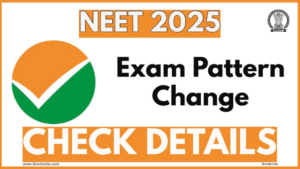Completed each year by Kerala Commissioner for Entrance Examinations – CEE – the Kerala Engineering Agricultural Medical Entrance Exam – KEAM – functions as Kerala’s state-level admissions examination. KEAM functions as the entrance exam to university admission for engineering, pharmacy, architecture and medical programs across institute campuses in Kerala. Detailed information about KEAM 2025 can be found in this guide alongside vital dates to remember and step-by-step preparation instructions and additional relevant information.
Overview
- Exam Name: Kerala Engineering, Agricultural, and Medical Entrance Exam (KEAM)
- Conducting Body: Commissioner for Entrance Examinations (CEE), Kerala
- Exam Level: State-level
- Mode of Exam: Computer-Based Test (CBT)
- Exam Dates: April 24–28, 2025 (2 PM to 5 PM daily)
- Courses Offered: B.Tech, B.Pharm, MBBS, BDS, B.Arch, and other allied courses
- Official Website: cee.kerala.gov.in
Key Highlights
| Aspect | Details |
|---|---|
| Exam Mode | Computer-Based Test (CBT) |
| Total Registrations (2024) | 1.13 Lakh |
| Marking Scheme | +4 for correct answers, -1 for wrong answers |
| Duration | 180 minutes for engineering; 90 minutes for pharmacy |
| Application Fee | INR 875 (General), INR 375 (SC), Nil (ST) for engineering |
Important Dates
| Event | Date |
|---|---|
| KEAM 2025 Registration | January – February 2025 (Tentative) |
| Form Correction Window | March 2025 (Tentative) |
| Practice Test Release | April 2025 (Tentative) |
| Admit Card Release | April 2025 (Tentative) |
| Exam Dates | April 24–28, 2025 |
| Buffer Days | April 22, 23, 29, 30, 2025 |
Eligibility Criteria
General Eligibility
- Age Requirement: Candidates must be at least 17 years old as of December 31, 2025. There is no upper age limit.
- Nationality: Only Indian citizens can apply. Persons of Indian Origin (PIO)/Overseas Citizen of India (OCI) are treated as Indian citizens but are not eligible for reservation benefits.
Educational Qualification
- Engineering Courses:
- Passed 10+2 with Physics, Mathematics, and Chemistry.
- Minimum 45% aggregate in these subjects.
- Pharmacy Courses:
- Passed 10+2 with English, Physics, Chemistry, and Mathematics/Biology.
- Architecture:
- Passed 10+2 with at least 50% in Physics, Chemistry, and Mathematics or a 10+3 diploma with 50% aggregate.
- Medical and Allied Courses:
- NEET scores are required for admission to medical courses.
Reservation Criteria
- Socially and Economically Backward Classes (SEBC) receive a 5% relaxation in minimum marks.
Application Process
Steps to Apply
- Registration:
- Visit cee.kerala.gov.in.
- Create an account by providing basic details.
- Filling the Application Form:
- Enter personal, educational, and income details.
- Uploading Documents:
- Upload scanned images of your photograph, signature, and left thumb impression.
- Ensure the file size is between 10-30 KB.
- Fee Payment:
- Pay the application fee online.
- Print Application Form:
- Save and print the completed application for future reference.
Exam Pattern
For Engineering
- Total Questions: 150 (75 Mathematics, 45 Physics, 30 Chemistry)
- Duration: 180 minutes
- Marking Scheme: +4 for correct answers, -1 for incorrect answers
For Pharmacy
- Total Questions: 75 (45 Physics, 30 Chemistry)
- Duration: 90 minutes
- Marking Scheme: +4 for correct answers, -1 for incorrect answers
Syllabus
The KEAM syllabus is based on the NCERT syllabus for Classes 11 and 12. Key topics include:
Physics
- Mechanics
- Electrodynamics
- Thermodynamics
- Optics
Chemistry
- Organic Chemistry
- Inorganic Chemistry
- Physical Chemistry
Mathematics
- Calculus
- Algebra
- Trigonometry
- Probability and Statistics
How to Prepare
- Understand the Syllabus:
- Familiarize yourself with the KEAM syllabus.
- Focus on NCERT textbooks.
- Create a Study Schedule:
- Allocate time for each subject.
- Include regular breaks.
- Solve Previous Year Papers:
- Download and practice KEAM question papers from the last 10 years.
- Identify and work on weak areas.
- Take Mock Tests:
- Simulate real exam conditions.
- Analyze performance to improve time management.
- Use Recommended Books:
- Physics: Concepts of Physics by H.C. Verma
- Chemistry: Modern Approach to Chemical Calculations by R.C. Mukherjee
- Mathematics: IIT Mathematics by M.L. Khanna
Key Changes in KEAM 2025
- Transitioned from pen-and-paper to CBT mode.
- Normalization of scores for multiple shifts.
- Introduction of a 15-minute mock test before the actual exam.
Admit Card and Exam Day Instructions
- Download admit cards from the official website in April 2025.
- Reach the exam center one hour before the reporting time.
- Carry a valid photo ID along with the admit card.
Results and Counselling
- Results will be available on the CEE website.
- Equal weightage (50:50) is given to KEAM scores and Class 12 marks for engineering admissions.
- CAP counselling is conducted for seat allotment.
Accepting Colleges
KEAM scores are accepted by:
- Government and private engineering colleges in Kerala.
- Select colleges in other states, based on agreements.
FAQs
1. What is the application fee for KEAM 2025?
The application fee is INR 875 for General candidates, INR 375 for SC candidates, and nil for ST candidates applying for engineering courses.
2. Can I apply for KEAM if I am not a resident of Kerala?
Yes, non-residents of Kerala can apply for KEAM, but reservation benefits are available only to Kerala residents.
3. What documents are required during the application process?
You need a scanned photograph, signature, and left thumb impression, along with educational certificates and proof of income (if applicable).
4. Is there negative marking in KEAM?
Yes, there is a negative marking of -1 for every incorrect answer.
5. Can I use a calculator during the exam?
No, calculators and other electronic devices are not allowed in the exam hall.
6. How is the rank calculated for engineering courses?
The rank is calculated based on a 50:50 weightage of KEAM scores and Class 12 marks in Physics, Chemistry, and Mathematics.
7. Are there mock tests available for KEAM 2025?
Yes, the CEE provides a practice test to familiarize candidates with the CBT mode.
Conclusion
Students looking to pursue engineering or pharmacy studies alongside allied science fields can use KEAM 2025 as their choice of examination. Students who plan well for the exam combined with pattern familiarity and repetitive practice demonstrate higher achievement rates. Registration process guidelines must be followed promptly to eliminate final-minute problems. Best wishes for your KEAM 2025 journey!






